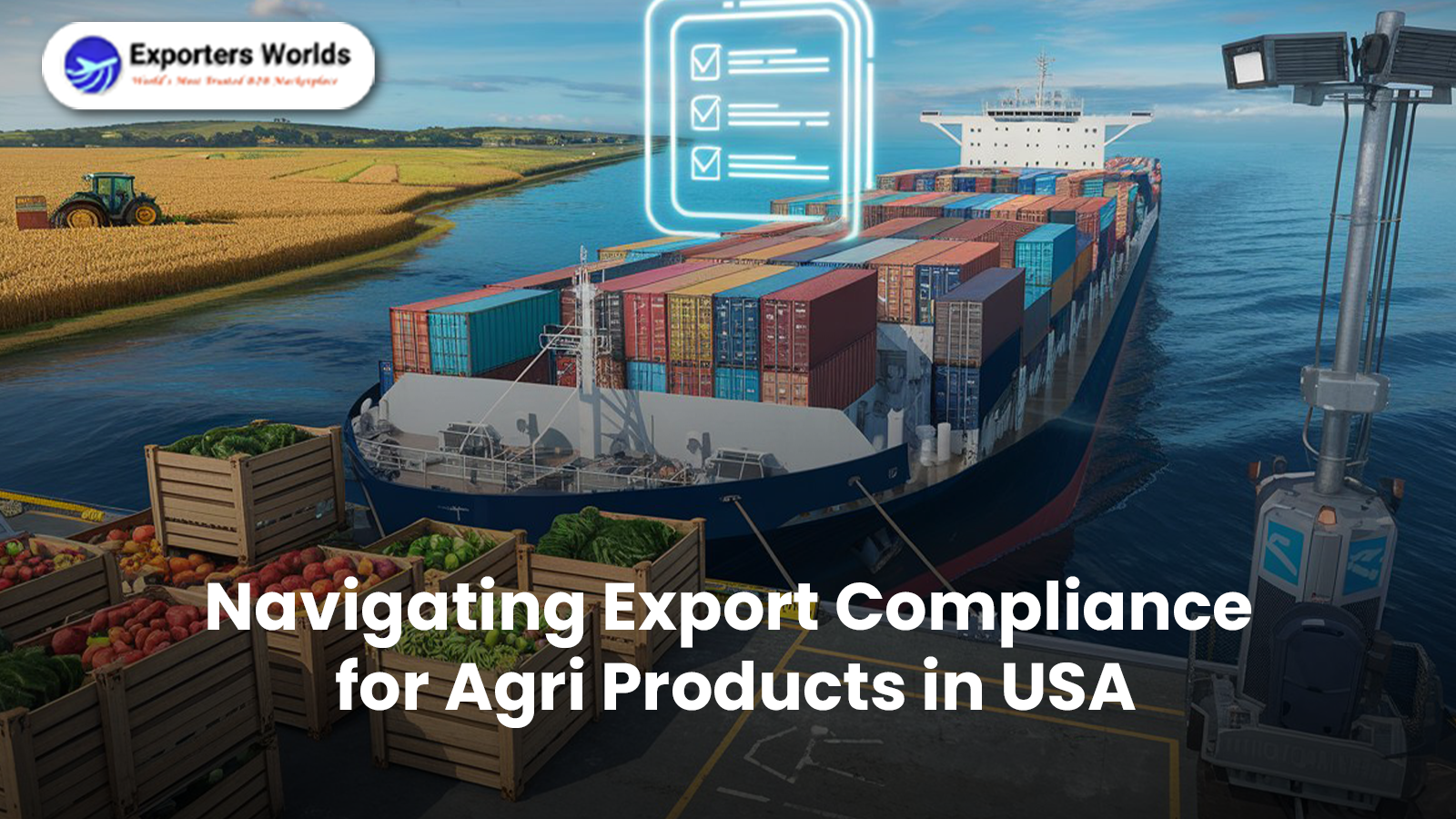Navigating Export Compliance for Agri Products in USA

Why Export Compliance Matters for Agri Products
Exporting agri products to the USA can feel like stepping into a dense forest—you know there’s a path, but one wrong turn can cost you time, money, and reputation. Consider a mid-sized exporter in India shipping wheat and pulses for the first time overseas. They assumed their agri supply products would be approved automatically. But customs halted the shipment. Labels didn’t meet USDA requirements, and documentation was incomplete. Weeks of delay later, the business realized compliance wasn’t optional—it was survival.
This scenario is not unique. According to USDA data, nearly 10% of agricultural shipments face delays or rejection due to incomplete or non-compliant documentation. For exporters dealing in Mid America Agri Products Wheatland or Colorado agri products, understanding compliance requirements isn’t just bureaucracy—it’s the difference between securing a US client or losing credibility.
Compliance builds trust. Buyers rely on verified agri supply products catalogs and a complete agri products list to assess quality, consistency, and reliability. Skipping these steps risks long-term relationships and future contracts.
Benefits of Proper Export Compliance
Why invest time, effort, and resources in understanding regulations? The advantages are clear and measurable:
-
Prevent Financial Loss: Non-compliance can lead to fines ranging from $10,000 to $50,000 per shipment, depending on the product category.
-
Boost Reputation: US buyers increasingly prefer suppliers who can demonstrate consistent regulatory compliance. Exporters who maintain their agri supply products catalog accurately see 20–30% faster contract approvals.
-
Enable Growth: Larger contracts often require a verified track record. A detailed agri products list showing product origins, certifications, and processing methods can help secure these deals.
For example, exporters of agri-food production like processed pulses, organic grains, or packaged wheat have reported a 35% increase in repeat orders after implementing proper compliance practices. Compliance isn’t just paperwork—it’s a strategic advantage.
Core Compliance Requirements for US Agri Exports
Exporters must navigate several regulatory layers to enter the US market safely:
-
FDA Regulations: The FDA ensures food safety, labeling accuracy, and adherence to ingredient standards. Exporters must register facilities and comply with Good Manufacturing Practices (GMP).
-
USDA Inspections: USDA oversight ensures quality and safety for grains, pulses, and other agricultural products. Specific programs like Phytosanitary Certificates are mandatory for crops such as wheat or legumes.
-
Labeling and Packaging: Labels must include ingredient lists, country of origin, storage instructions, and sometimes allergen information. Failing here can lead to shipment rejection.
-
Documentation: Essential documents include commercial invoices, packing lists, certificates of origin, and an accurate agri products list. Missing or inconsistent data can delay shipments for weeks.
Interestingly, a study by the International Trade Centre shows that 60% of agri exporters face shipment delays due to documentation errors, making proper compliance a key competitive differentiator.
Case Study: Turning Compliance Challenges into Opportunity
Let’s take a closer look at a real-world example. A Colorado-based exporter offering Colorado agri products like wheat, cornmeal, and pulses initially struggled. Their shipments were often held at customs, leading to frustrated buyers and lost orders.
The turning point came when they invested in:
-
Updating their agri supply products catalog with accurate descriptions.
-
Maintaining a verified agri products list for every shipment.
-
Implementing a compliance checklist for FDA and USDA requirements.
Within six months, shipments cleared on time, US orders increased by 40%, and the company secured long-term contracts with major retail chains. The lesson: compliance transforms uncertainty into a strategic growth engine.
Recent Trends in US Agri Export Compliance
Global trade in agri products is evolving rapidly, and compliance is no longer static:
-
Digital Trade Documentation: Many exporters now submit FDA and USDA forms online. According to a 2024 report, digital submissions reduce rejection rates by 25%.
-
Sustainability and Organic Products: US consumers increasingly demand organic, eco-friendly products. Exporters offering Mid America Agri Products Wheatland or certified organic grains gain premium pricing.
-
Trade Policy Changes: Tariffs and regulatory updates affect imports from different regions. Awareness of these policies can prevent unnecessary costs.
Interesting Facts About Agri Exports
-
The US imports over 10 million tons of agricultural products annually from more than 100 countries.
-
Non-compliance costs exporters an average of $15,000–$50,000 per incident.
-
Labeling errors are the most common reason for shipment rejection.
-
Maintaining a detailed agri products list improves on-time delivery success by nearly 25%.
-
Verified B2B marketplaces increase repeat business rates by 30–40%.
These facts highlight the importance of diligence and foresight in agri exports.
How Exporters Worlds Can Simplify Your Compliance Journey
Export compliance may feel like a complex maze, but platforms like Exporters Worlds provide a clear path. By connecting exporters with verified buyers, offering guidance on documentation, and ensuring end-to-end support, they simplify every step.
With Exporters Worlds, your agri supply products catalog reaches the right audience, your agri products list is verified for accuracy, and your business gains credibility. Exporters handling grains, pulses, and processed agri-food production can now focus on growth rather than paperwork. Their platform combines export assistance, digital tools, and verified B2B connections to make international trade efficient and reliable.
Final Thoughts: Compliance as a Strategic Advantage
Exporting is not just about moving goods; it’s about moving trust, reputation, and relationships across continents. Understanding compliance, keeping documentation precise, and leveraging platforms like Exporters Worlds transforms a potentially overwhelming forest into a clear, guided highway.
For every exporter taking the first step, remember: each certificate verified, each form completed, is a brick in your foundation of international growth. Personally, seeing a shipment finally cleared after weeks of preparation feels like watching a small boat pass through turbulent waters into calm seas—a quiet but deeply satisfying victory.
Start growing your business today by partnering with Exporters Worlds. Export your agri supply products with confidence, stay compliant, and connect with verified buyers in the US market.




